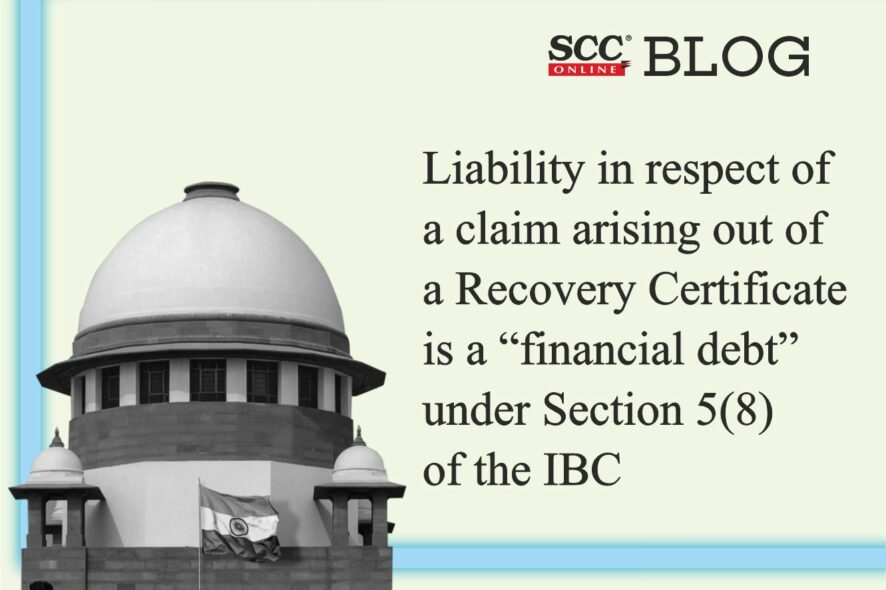Supreme Court: The 3-judge bench of L. Nageswara Rao, BR Gavai* and AS Bopanna, JJ has held that a liability in respect of a claim arising out of a Recovery Certificate would be a “financial debt” within the meaning of clause (8) of Section 5 of the IBC. Consequently, the holder of the Recovery Certificate would be a financial creditor within the meaning of clause (7) of Section 5 of the IBC. As such, the holder of such certificate would be entitled to initiate CIRP, if initiated within a period of three years from the date of issuance of the Recovery Certificate.
The Court explained that the words “means a debt along with interest, if any, which is disbursed against the consideration for the time value of money” are followed by the words “and includes”. By employing the words “and includes”, the Legislature has only given instances, which could be included in the term “financial debt”. However, the list is not exhaustive but inclusive.
“The legislative intent could not have been to exclude a liability in respect of a “claim” arising out of a Recovery Certificate from the definition of the term “financial debt”, when such a liability in respect of a “claim” simpliciter would be included in the definition of the term “financial debt”.”
Observing that the trigger point for initiation of CIRP is default of claim, the Court further explained that “default” is non-payment of debt by the debtor or the Corporate Debtor, which has become due and payable, as the case may be, a “debt” is a liability or obligation in respect of a claim which is due from any person, and a “claim” means a right to payment, whether such a right is reduced to judgment or not. It could thus be seen that unless there is a “claim”, which may or may not be reduced to any judgment, there would be no “debt” and consequently no “default” on non-payment of such a “debt”.
“When the “claim” itself means a right to payment, whether such a right is reduced to a judgment or not, we find that if the contention of the respondents, that merely on a “claim” being fructified in a decree, the same would be outside the ambit of clause (8) of Section 5 of the IBC, is accepted, then it would be inconsistent with the plain language used in the IBC.”
Hence, taking into consideration the object and purpose of the IBC, the legislature could never have intended to keep a debt, which is crystallized in the form of a decree, outside the ambit of clause (8) of Section 5 of the IBC.
[Kotak Mahindra Bank Ltd. v. A. Balakrishnan, 2022 SCC OnLine SC 706, decided on 30.05.2022]
*Judgment by: Justice BR Gavai







